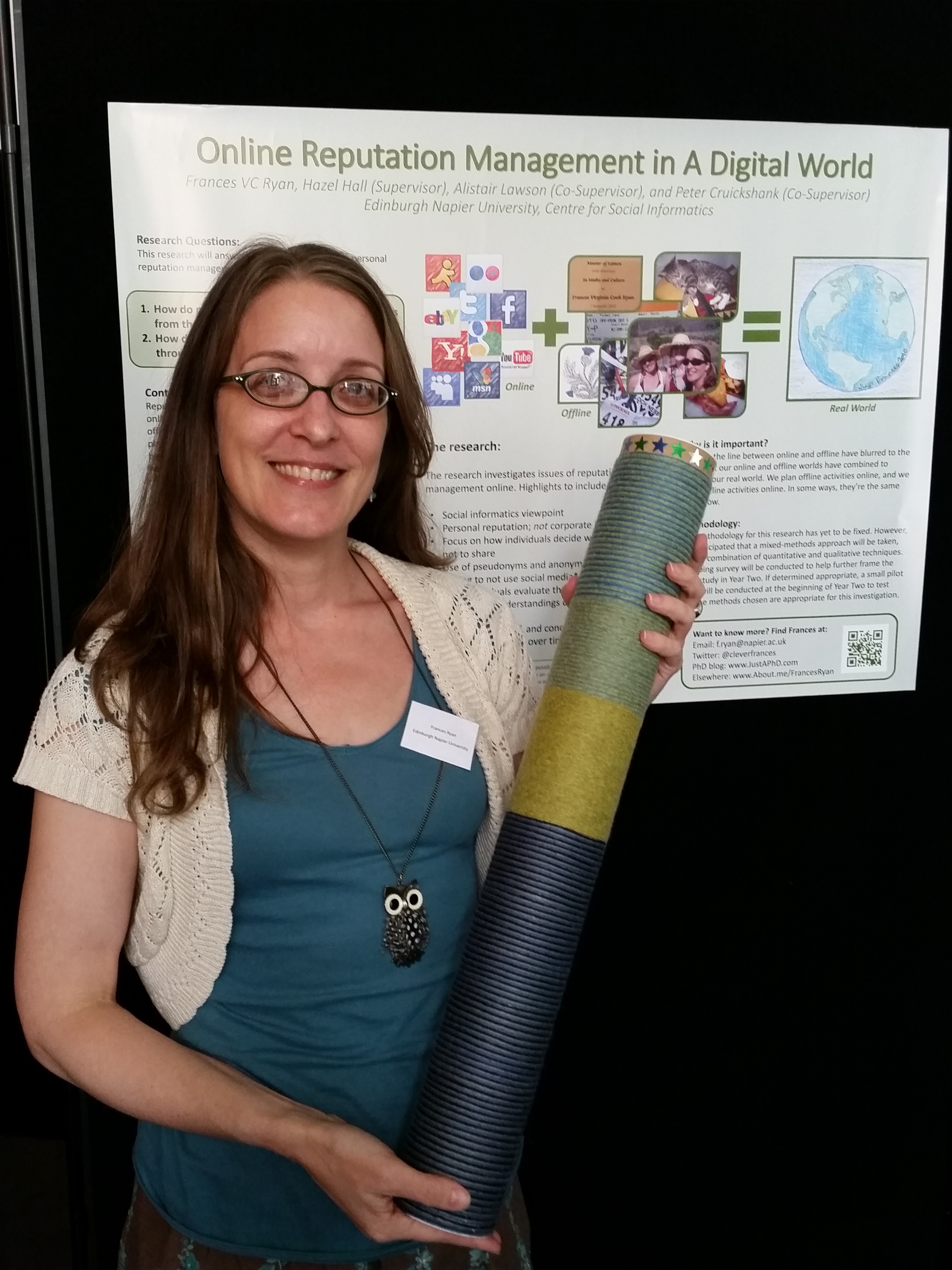I attended the second annual iFutures Conference in Sheffield yesterday. This year’s theme was “Research into Practice” and was very informative for me as a first-year PhD student. It was also an opportunity for me to present my poster “Online Reputation Management in a Digital World” for the second time.
The conference began with a keynote address by Professor David Bawden of City University London. His talk, “Information research: Still versus the practitioner?”, discussed the relationship between academics and practitioners and questioned whether communication between the two groups is flawed. Bawden continued to talk about issues of publication and the differences (benefits and cautions) between publishing in academic journals, professional publications, and blogs.
After the keynote, there were paper presentations and a couple of Pecha Kucha-style talks. The topics seemed to centre on open access and information literacy – both subjects that I am keen to know more about. I found it especially useful to hear how the presenters are approaching their research at the different stages of studies, but I also found it useful to see a variety of presentation styles.
I also found the student presentations interesting because I often feel out of place in the information science and informatics realms because I can’t help but think I’m a media person because of my previous educational and professional backgrounds and because I’m studying social media. I think the more I hear from others within my discipline, the more I will see the connections between my research and that of other information and informatics researchers.
But I digress…
In the afternoon, we broke into two workshop sessions. I chose to join the session “Disseminating your research to maximise impact” run by Sheila Webber of the University of Sheffield. The session gave a good overview of ways to disseminate research and looked at issues of sharing the right information on the right platform. Whilst some of her talk was a review for me (issues of managing your reputation) there were some great takeaways that I hadn’t considered. Webber has made her presentation available on SlideShare, so be sure to check it out.
Finally, the day ended with a closing address by Professor Nigel Ford of the University of Sheffield. Like the keynote speaker, Ford spoke about the connections and tensions between academics and professionals in the dissemination of research. He also used several cosmology analogies to discuss the linking up of scattered points within research. It was very interesting and I truly appreciated how his talk looped back around to points made at the start of the day.
My favourite knowledge tidbits from the event were:
- Discussions about the divide between academics and practitioners
- Views and opinions about open access for academic research
- Learning more about what other PhD students are researching
On a fun, personal note, I was very flattered when I noticed that one of the posters had some similar design elements to mine. The author said she’d found my poster online when searching for inspiration and that’s why she had those similar elements. (Yes, this did wonders for my ego!)
I was also very pleased with the compliments on my poster tube – and then had to laugh when others were trying to determine which plain, brown tube was theirs at the end of the day. (Another ego moment, I admit.)
And I can’t forget a great big thank you to the organising committee for all of their hard work in setting up the day’s event. I was really pleased with the entire day and will look forward to seeing next year’s event come together!
[Photo of me with my poster is copyright Leo Appleton, one of my fellow PhD students in the Institute for Informatics and Digital Innovation.]
